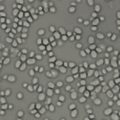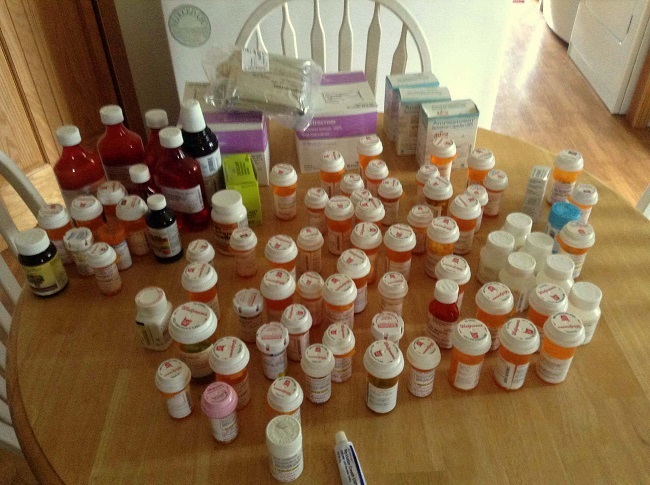So many people that have been impacted by fluoroquinolones, mostly Ciprofloxacin (Cipro), scour the internet looking for information, symptoms, cures, and shared experience. I was affected by just one 500mg pill that I took 10 days ago. I am hoping my story can be helpful to others, and that maybe someone can share knowledge with me to help my situation.
My Health Before Cipro
I am 34. I run three miles every day, eat pretty healthily, but consume 2-3 glasses of wine every day. Because I am a daily drinker, I could definitely be considered a functioning alcoholic. I also avoid the sun, as I am fair, and don’t care for the sun damage. As a result, many doctors have told me my vitamin D levels were extremely low, but that I am very healthy aside from that.
Before taking Cipro, I had achy ankles on the top anterior portion, and a sore neck all the time. I suspect my activity level and alcohol consumption was leading to my minor aching, possibly indicating a magnesium deficiency. Oddly, neither ache has bothered me since Cipro, maybe because I am taking magnesium now. Since the Cipro experience, I have also stopped drinking wine, coffee is now my only guilty pleasure.
Why I was Prescribed Cipro
Nine days ago, after a night of red wine and noodles saturated in spicy chili paste, I woke up with a burning urethra. This had been the third time this had happened in the last six months. The two previous times, I was prescribed the antibiotic Macrobid without testing of the urine. I had never had a UTI in my life before these three episodes, so I thought it was all rather unusual. The third time it happened, I went to a different doctor at an urgent care, he suspected Macrobid did not kill the initial infection and then prescribed the Cipro. He told me to begin taking the Cipro while we waited 3 days for the urine test results to come back. He never indicated that Cipro was dangerous or had poison labels; nothing.
So, I went home and popped the first 500mg pill. Six hours later, I start searching online for side effects. I ran into the dark stories of despair. I panicked. I knew I was past the time limit for vomiting the pill out, so I took five Tums and drank some milk. I was hoping the Calcium would interact the pill. The next day I called the doctor, very upset that he prescribed the medication, and I requested a different antibiotic. He gave me Bactrim, I proceeded to take three Bactrim over the next 1.5 days until the doctor called and told me to stop taking them because the urine results came back without any bacteria. After researching and consulting a urologist, it is suspected I simply suffered from Urethral Syndrome brought on my Wine/Coffee/Spicy food combo.
My Cipro Reaction: Joint and Vision Problems
I began taking magnesium citrate the day after I took that one Cipro pill. On the third day following the pill, I started to get popping in the joints of my knees, shoulders, wrists, and fingers, and leg weakness. I also woke up with stiff eyes. It felt like inflammation or tightening behind my eyeballs. As the day progressed, I became more sensitive to light. By the end of the day, my eyes had sharp pains and I could not open them without severe pain and light sensitivity. I rushed to the ER. They were little to no help because they do not have eye doctors on staff. The following day, I went to an optometrist. They dilated the eyes and determined the optical nerve and retina appeared healthy. I still have no idea why I had an episode with my eyes. Was it tight tendons, swelling from immune system, or CNS reaction? I don’t know, neither did the eye doctor. It’s worth mentioning I never had eye problems before. I have perfect vision in both eyes and haven’t ever worn contacts. Now, my vision has cleared up and the pain and swelling has gradually dissipated from my eyes.
I have jogged lightly the last two days. After each jog, I notice little bruise/blood spots around the knees. I don’t know if they are little vessels breaking or something else, but it has never happened before. I also have a weird stabbing pain in the front, right side, of my throat while I am jogging. I feel like I am recovering, but it has been the scariest 10 days of my life.
I am currently taking the following supplements:
- CoQ10 – 200 mg
- Calcium – 1200mg
- Magnesium glycinate – 400 mg
- Magnesium citrate – 250 mg
- D3 – 4000IU
- Vitamin C – 500 mg
In addition, I take a daily vitamin and a daily Epsom salt bath. I am looking for advice on how to heal.
We Need Your Help
More people than ever are reading Hormones Matter, a testament to the need for independent voices in health and medicine. We are not funded and accept limited advertising. Unlike many health sites, we don’t force you to purchase a subscription. We believe health information should be open to all. If you read Hormones Matter, like it, please help support it. Contribute now.
Yes, I would like to support Hormones Matter.
Share Your Story
If you have a fluoroquinolone story to share, send us a note.
This story was published originally on July 30, 2018.
















